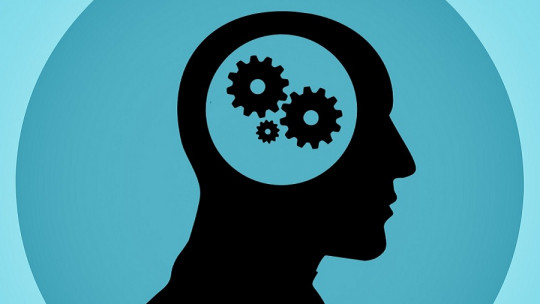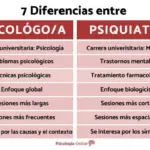
Psychiatrist or psychologist? Who do I contact? What is the difference between one and the other?
I intend for this to be a short and specific article that answers, neither more nor less, the question in the title. So I’m only going to focus on the difference between both professionals, which I understand is the most important and significant.
How to choose between a psychologist or psychiatrist?
The cardinal difference lies in the tools that both professionals use to address the problem presented by the patient.
The psychiatrist’s main tool is psychotropic drugs, through which he tries to induce changes in brain chemistry, which in turn result in an improvement or relief of the symptoms that afflict the person.
In a complementary way, the psychologist’s main tool is the personal resources available to the patient who consults him. This professional pursues the same objective as the psychiatrist, but appealing to the person’s own strengths and abilities to achieve changes in the way you think and behave.
But… which is better?
The answer is: both. As we have seen previously, They are not opposite approaches, but complementary and there is considerable evidence that mixed treatments (which combine both approaches) are generally more successful for a wide range of disorders.
The dichotomy or rivalry between psychiatrists and psychologists is a myth With unfortunate exceptions, both want the same thing for the patient and collaborate mutually towards that goal.
While the psychiatrist goes “from the inside out” (from the brain to the behavior), the psychologist goes “from the outside in” (from the behavior to the brain). These are two sides of the same coin.
Perhaps the reader friend may be thinking: “But how can a psychologist achieve structural changes in the patient’s brain? Don’t screw me, that’s only possible with a psychoactive drug! If that’s your case, he needs to know that The brain changes permanently throughout our lives ; In fact, it is life itself that makes it change.
When we learn to play the violin, our brain changes. When we learn a new language, our brain changes. When our partner leaves us for another, our brain changes. When the neighbor insults us because we played the music too loud, our brain changes.
And I am being very serious, without metaphors or exaggerations. Thanks to the great permeability and capacity of the human brain to modify itself and adjust to daily experiences and environmental demands, we became the dominant species on the planet. So he already knows, the psychologist can do a lot for you in that regard.
Beyond psychotropic drugs
In line with the above, you should also know that while medication can be very beneficial, there is something it cannot do for you: resolve the conflicts that arise in the lottery of life
There are no pills that help us reconcile with a brother with whom we are at enmity, for example. Or help us choose a career to study. Or any other problem inherent to life itself that we must solve.
Psychotherapy helps us think about what we want for ourselves and implement the necessary steps to achieve it. No medication has yet been invented to which we can delegate these issues.
In closing, I leave you this question: What do you need if you want to learn to play the piano? The obvious answer is: A piano and a piano teacher. Well, the drug that the psychiatrist prescribes is the piano in this beautiful metaphor; and the psychologist is the teacher who teaches him to play it.








